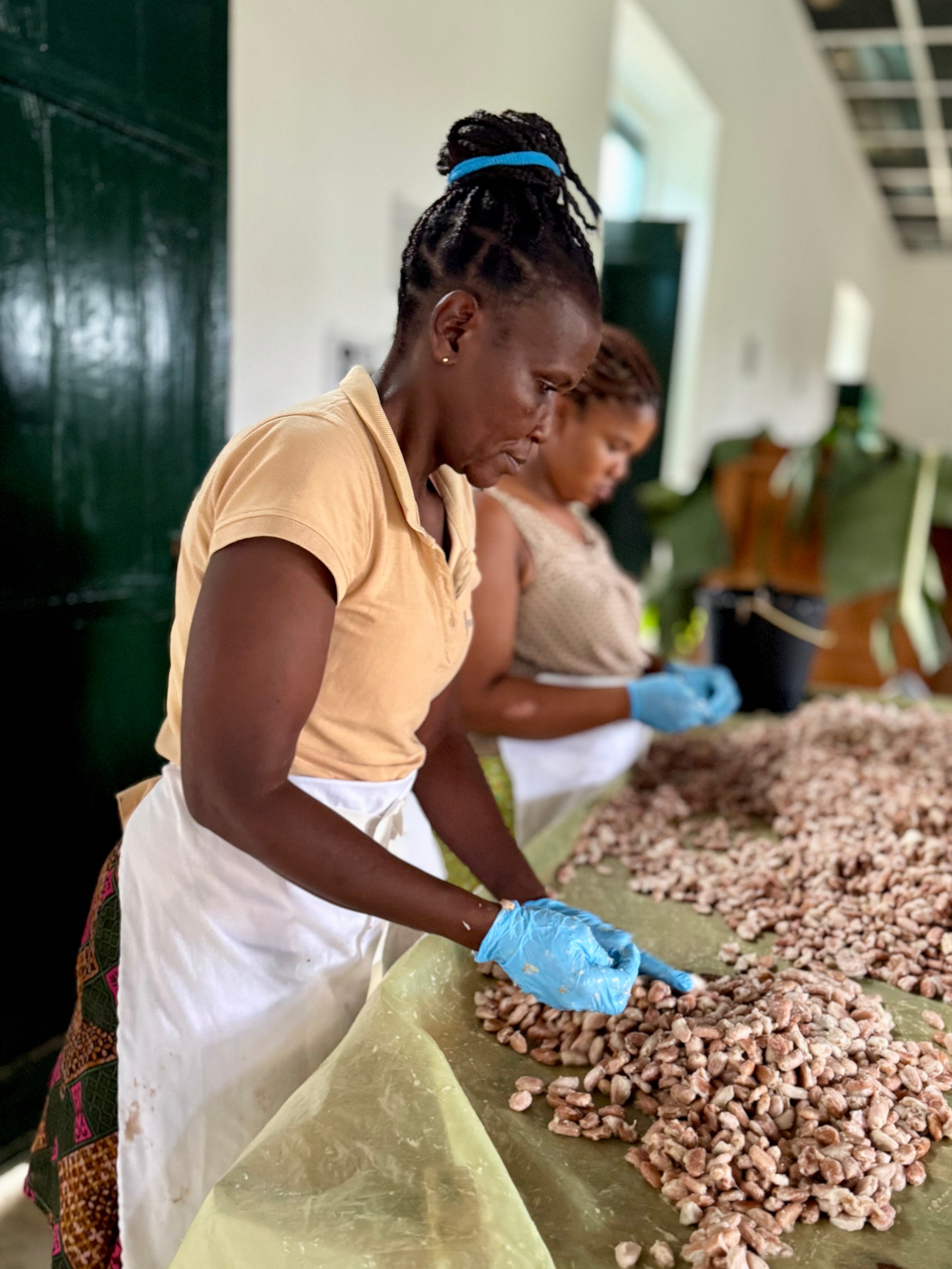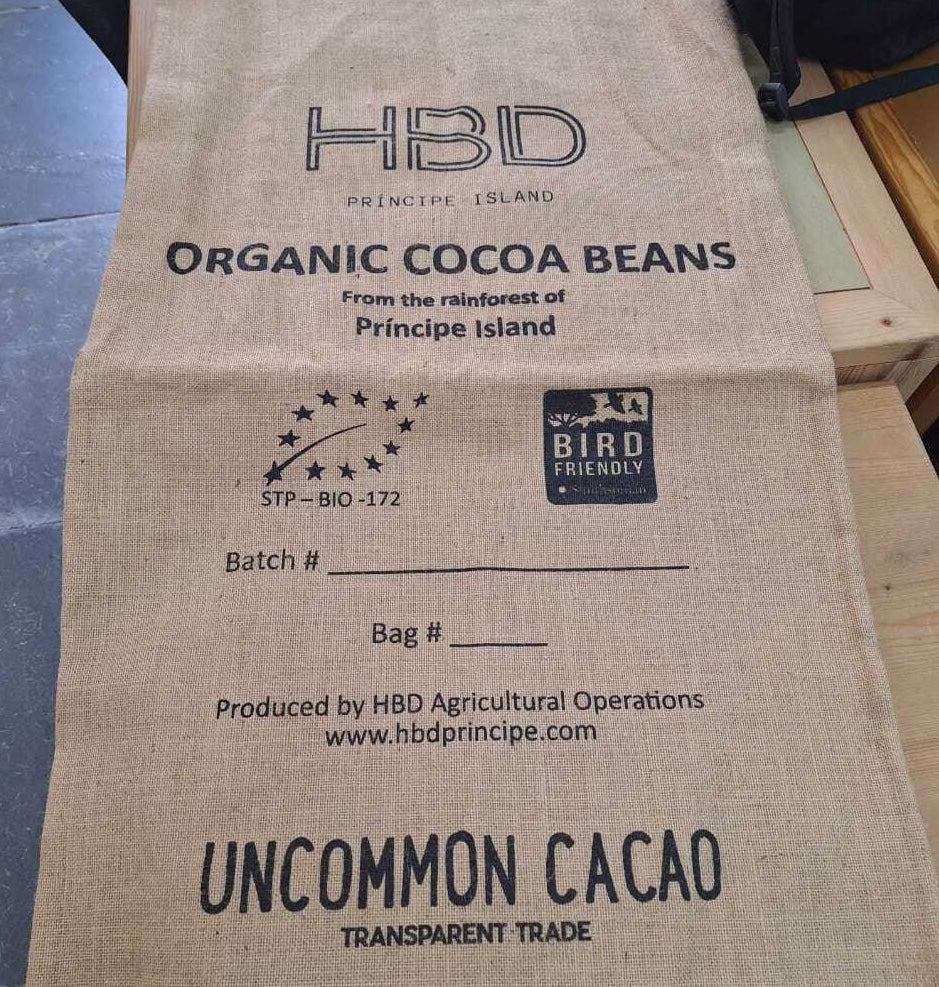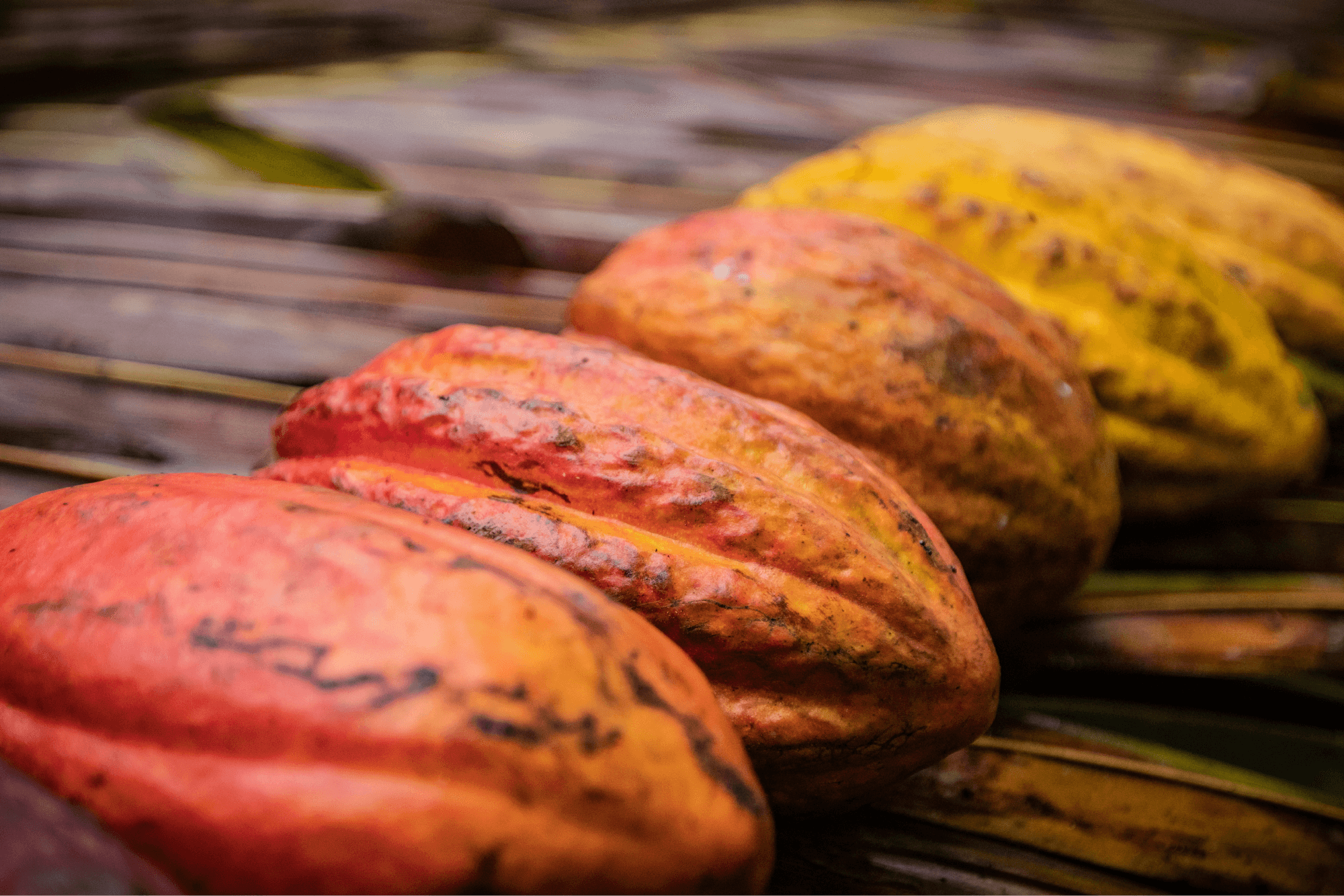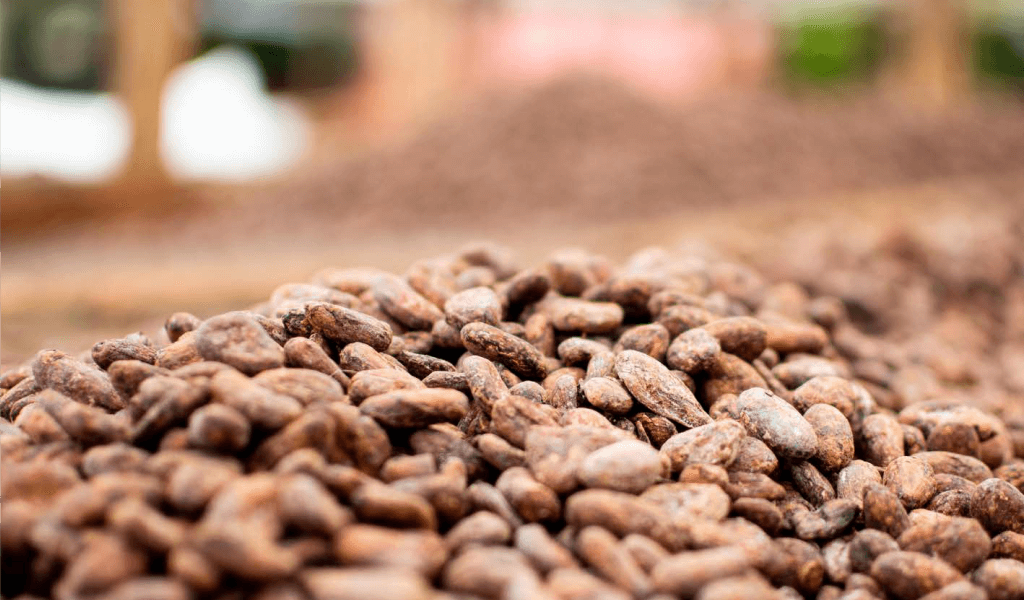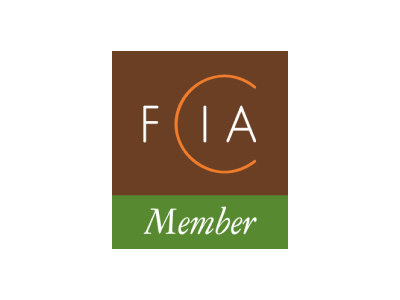Democratic Republic of São Tomé and Príncipe
Roça Sundy, Príncipe
In every bite of Príncipe cacao there is a story of revival, resilience, and respect for nature.
2023 Data - Product
Quality: Ultra Premium
Flavor Profiles: Dark Chocolate Ganache, Macadamia, Banana, Vanilla
Fermentation Style: Wood box
Drying Style: Raised beds with profiled polycarbonate roof and Mechanical (fuel-based) dryers for process completion
Quality Practices: BRIX measurement, temperature monitoring during fermentation and cut test
Hand sorting: Yes
Certifications: Organic and Bird Friendly
2024 Data - Planet
Crops that are used for intercropping: Banana and coconut trees
Environmental practices: We are certified Organic and our cocoa plantations are certified Bird Friendly. Within these certifications, there are many actions that we follow, such as the use of cover crops and integrated pest management. Beyond our agricultural operations, our Group, HBD Príncipe, has a strong vision: "Sustainable social and economic development on São Tomé and Príncipe and conservation of the island’s UNESCO Biosphere Reserve." HBD believes that we have the opportunity and responsibility to disrupt the status quo: our mission is to become a global inspiration through sustainable integrated ecotourism, agroforestry, support services, and social initiatives. Whether it is related to fuel consumption (e.g., increasing collective mobility to reduce fuel consumption) or building techniques (e.g., integrating natural building materials like rammed earth blocks; reversible design techniques) or local sourcing (e.g., incorporating local produce into our menus; buying upcycled crockery for our staff canteens), we have a plethora of environmentally friendly practices.
Notably, we have an in-house Waste Management & Recycling team focused on ensuring the waste and recycling produced across our operations is disposed of properly. This team's focus for recycling expands to beyond our company and we lead two island-wide recycling initiatives: recycling glass into glass sand and leading a trade-in program for aluminum cans for school supplies.
Beyond these community initiatives, we support other practices such as trail clean-ups across the HBD concessions as well as in different communities and beaches across the island.
Organic hectares cultivated: 75
Average percent of shade of cacao farms: 50-80%
Distance of producer to facility (km): 3
Distance to port (km): 8.5
Ocean freight CO2kgs per MT (EU): 122.81
2024 Data - People
Community Initiatives: We have a team entirely dedicated to Waste Management & Recycling and we have purchased recycling machinery. HBD leads our Conservation & Communities Contribution (CCC) that finances community initiatives, such as clean-ups, educational visits to our recycling center for school groups, donation to our local nonprofit partner the Príncipe Foundation, and more. The CCC support is outlined in our annual report, available on our website: https://www.principecollection.com/en/sustainability/conservation-and-communities.
Producers purchased from: 1
Organic Producers: 1
Total # of producers trained: 20
Total # female producers trained: 11
Total # of producers under 35 y/o trained: 8
Full time employees: 20
Full time female employees: 11
Average farm size (ha): 75
Average sales per producer (dry kg): none in 2024
Average annual cacao revenue per producer: none in 2024
Historically one of Príncipe’s most significant cacao estates, Roça Sundy has been revitalized through the efforts of HBD Príncipe, a B Corp focused on sustainable development across the island. Today, it stands as a model for conservation-focused cacao production, balancing economic opportunities for local communities with environmental preservation.
Roça Sundy is a living example of agroforestry in harmony with nature. It has received Bird Friendly certification, recognizing its commitment to protecting the island’s rich birdlife, including several endemic species found only on Príncipe. The plantation’s cacao trees are intercropped with native flora, providing crucial habitats for wildlife while promoting soil health and reducing the need for chemical inputs. The centralized process ensures consistent fermentation and drying, optimizing the unique flavor potential of Príncipe’s cacao. Beyond this unique flavor, it tells a story of revival, conservation, and community resilience, making it a truly special origin in the world of specialty cacao.
HBD Principe manages 1,700 hectares of concessions, employing over 600 people—10% of the island's adult population—with private transport, housing, and medical care for all the staff and their families. HBD Principe invests in sustainability through island-wide recycling, and has invested over 20,000 hours of training of all kinds into local communities: carpentry, agriculture, hospitality, and more. Additionally, HBD supports a local NGO, Fundação Príncipe, that works on sea turtle conservation.
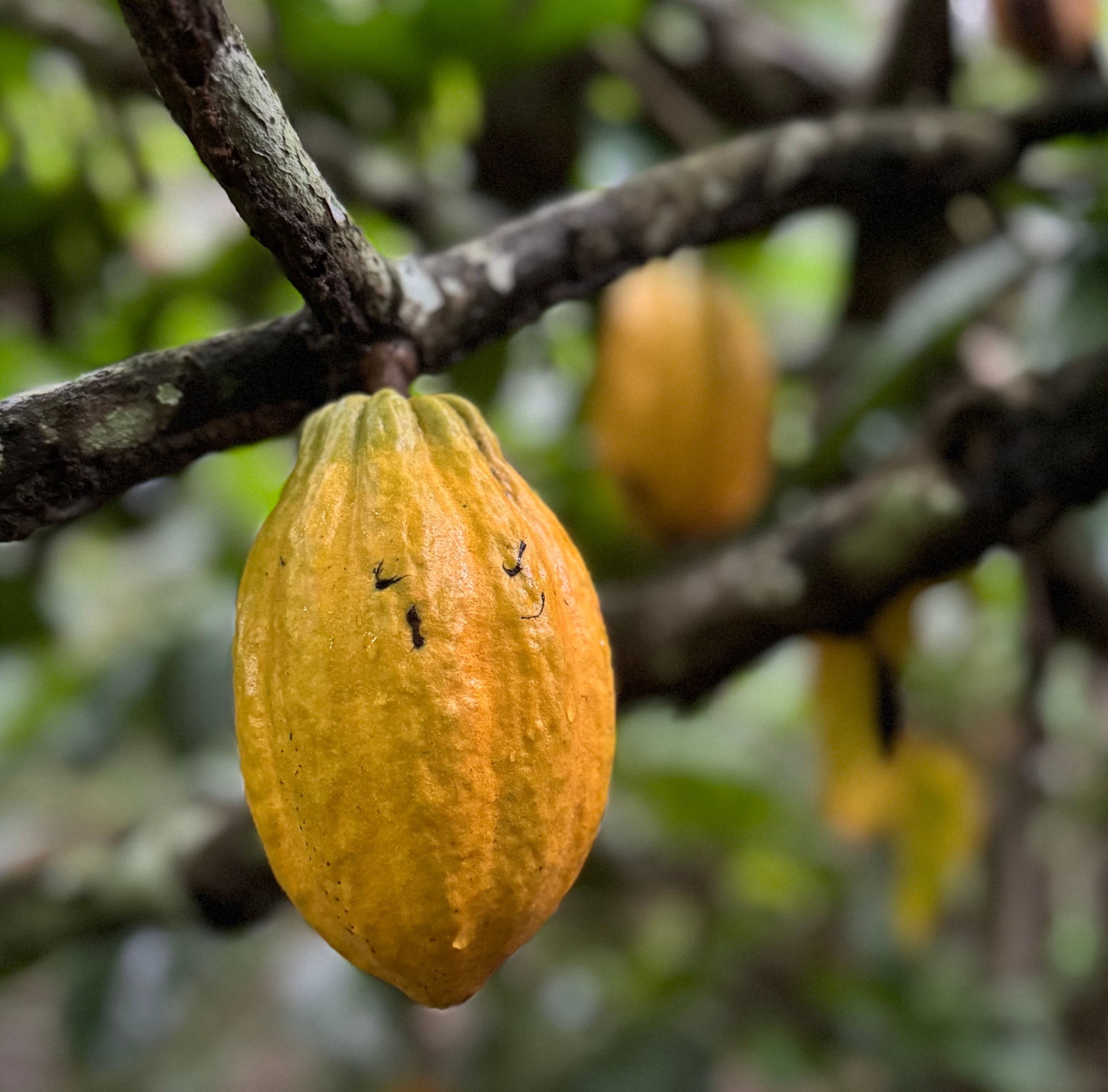
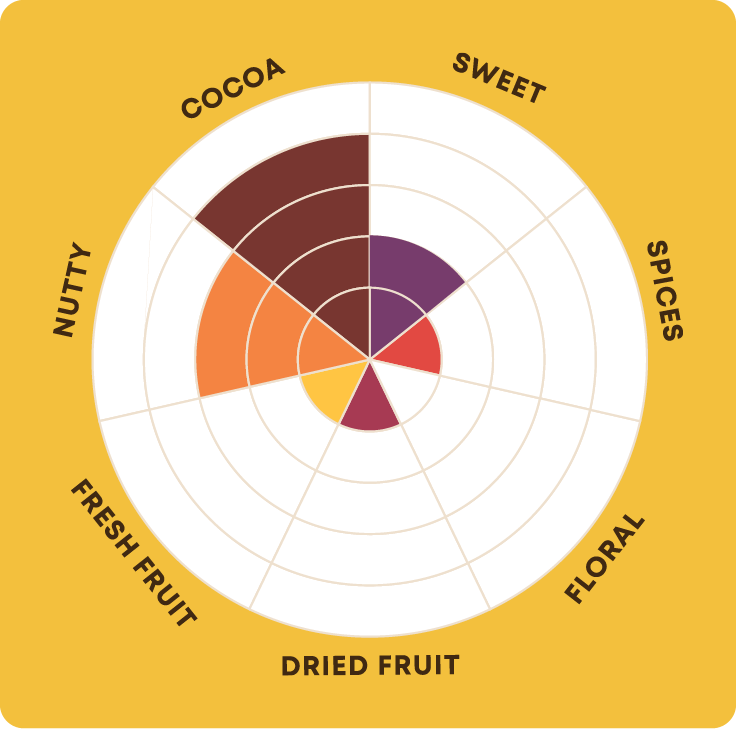
TERROIR
The island of Príncipe is a volcanic gem off the coast of Central Africa, boasting a stunning array of microclimates and biodiversity. The combination of volcanic soil, tropical humidity, and lush rainforests creates a one-of-a-kind terroir that shapes the flavor of its cacao. With an annual rainfall averaging over 1,500 mm and a mix of lowland and montane forests, Príncipe provides an ideal environment for cacao cultivation. The island’s cacao tree is predominantly Amelonado, a Forastero variety introduced during Portuguese colonization.
Roça Sundy has evolved respectfully alongside the island’s protected UNESCO Biosphere Reserve, ensuring that cacao production aligns with conservation goals. Shade-grown under native tree canopies, the cacao farms support biodiversity, from endemic bird species to medicinal plants used by local communities.
HBD Príncipe embodies a vision of harmony between nature, people, and culture. Their work supports the local community through education, skill-building, and sustainable livelihoods while prioritizing environmental conservation. By fostering responsible cocoa production, they aim to preserve Príncipe's rich biodiversity and contribute to the well-being of the island's residents through impactful social and environmental initiatives.
Historically one of Príncipe’s most significant cacao estates, Roça Sundy has been revitalized through the efforts of HBD Príncipe, a B Corp focused on sustainable development across the island. Today, it stands as a model for conservation-focused cacao production, balancing economic opportunities for local communities with environmental preservation.
Roça Sundy is a living example of agroforestry in harmony with nature. It has received Bird Friendly certification, recognizing its commitment to protecting the island’s rich birdlife, including several endemic species found only on Príncipe. The plantation’s cacao trees are intercropped with native flora, providing crucial habitats for wildlife while promoting soil health and reducing the need for chemical inputs. The centralized process ensures consistent fermentation and drying, optimizing the unique flavor potential of Príncipe’s cacao. Beyond this unique flavor, it tells a story of revival, conservation, and community resilience, making it a truly special origin in the world of specialty cacao.
HBD Principe manages 1,700 hectares of concessions, employing over 600 people—10% of the island's adult population—with private transport, housing, and medical care for all the staff and their families. HBD Principe invests in sustainability through island-wide recycling, and has invested over 20,000 hours of training of all kinds into local communities: carpentry, agriculture, hospitality, and more. Additionally, HBD supports a local NGO, Fundação Príncipe, that works on sea turtle conservation.


TERROIR
The island of Príncipe is a volcanic gem off the coast of Central Africa, boasting a stunning array of microclimates and biodiversity. The combination of volcanic soil, tropical humidity, and lush rainforests creates a one-of-a-kind terroir that shapes the flavor of its cacao. With an annual rainfall averaging over 1,500 mm and a mix of lowland and montane forests, Príncipe provides an ideal environment for cacao cultivation. The island’s cacao tree is predominantly Amelonado, a Forastero variety introduced during Portuguese colonization.
Roça Sundy has evolved respectfully alongside the island’s protected UNESCO Biosphere Reserve, ensuring that cacao production aligns with conservation goals. Shade-grown under native tree canopies, the cacao farms support biodiversity, from endemic bird species to medicinal plants used by local communities.
HBD Príncipe embodies a vision of harmony between nature, people, and culture. Their work supports the local community through education, skill-building, and sustainable livelihoods while prioritizing environmental conservation. By fostering responsible cocoa production, they aim to preserve Príncipe's rich biodiversity and contribute to the well-being of the island's residents through impactful social and environmental initiatives.
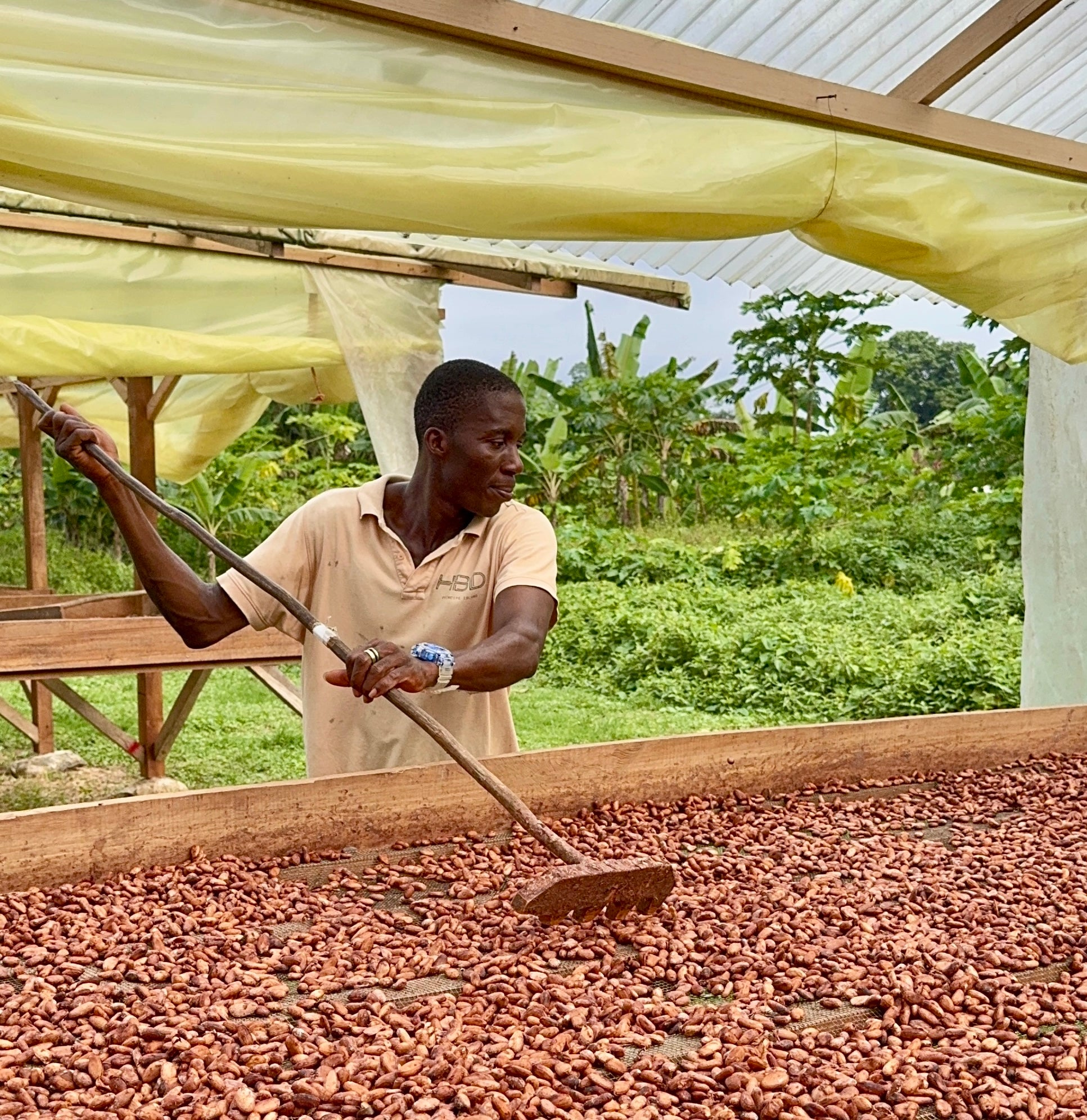
Notable Awards
None yet, be the first!
Roselao Fernandes (aka Junka) rakes drying cacao.

